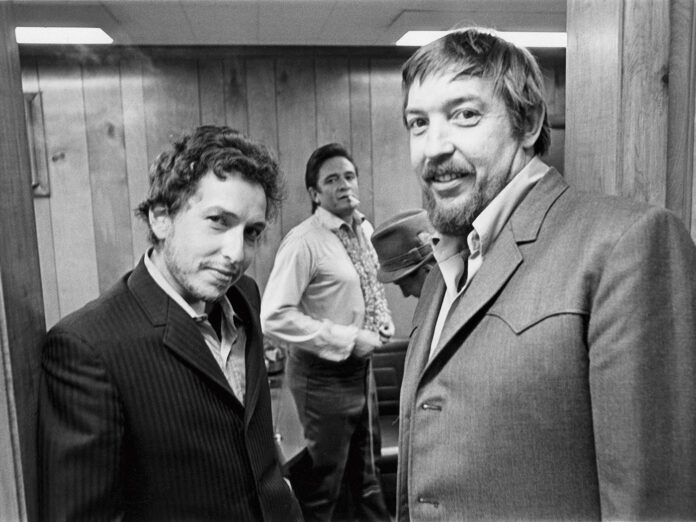https://www.youtube.com/watch?v=dF5xVnTo8gs
When Tyneside folk-rockers Lindisfarne learned they would be working on their second album with Bob Johnston, as Bob Dylan fans, they were delighted. Professionally, they hoped that this would be the record to elevate them from the ranks of student circuit favourites. They prepared a running order to represent the interests of each of the band’s three writers, and met Johnston and Stratton-Smith for lunch before the sessions began. Bassist Rod Clements remembers that at the slap-up meal, Johnston ordered only a bowl of strawberries and a glass of red wine. “He dipped the strawberries in the wine.”
The next day, they went to Trident studios to begin work.
“We had all the songs prepared, and we played them,” remembers drummer Ray Laidlaw. He said, ‘Great. What else have you got?’ It was a bit of a comeuppance. So we spent the rest of the first day doing every song we knew – hooks, parts of songs, anything. I think we ended up using half of what we originally had. He was constructing an album that had a feel, sequencing it in his head as he went along.
“He was very professional. But he basically sat with his feet on the desk rolling joints most of the time,” Laidlaw continues. “He had a great big bag of grass and would roll lots of one-skin joints. I remember one day we asked him about Elvis, and Bob said. ‘He’s a truck driver. He’ll always be a truck driver.’”
“He had a lot of presence about him,” says Rod Clements. “He was quite pithy: I remember him telling Ray Jackson to sing something again and saying to him, ‘You sound like you’re talking to a trunk.’ By which I think he meant a suitcase. He did some quite bizarre and touching things. He wrote a poem about the band, and told us the occupation he thought we would each have if we weren’t in a band. Mine was ‘gravedigger’.”
During recording, the band had a date at the Royal Festival Hall, at which the band played Alan Hull’s “Fog On The Tyne” – a rousing number from his solo folk club shows. Johnston hadn’t heard it. “It went down a storm at the Festival Hall,” says Ray Laidlaw, “and when we came back, Bob said ‘How come you haven’t played me that?’ We said, ‘We don’t think much of it…’ It wouldn’t have been on the album if it hadn’t been for him.”
Perhaps tellingly, it remains Lindisfarne’s best-known work.
“I never paid any attention to people at the record company apart from John Hammond and Ahmet Ertegun,” says Bob. “John took me up to run CBS one time and said what would you do? I said, ‘I’d move the talented people away from the business people and never let them go visit each other ever. That way you can steal all the money you want but you can still have good music’. (Executive William S) Paley said, ‘You didn’t want the job very much did you? Have a good afternoon.’ I wanted it, but on my terms…”
“He would not back down if he had something he wanted to say,” says Charlie Daniels. “He hears something that no-one else hears. He’s got a talent for staying out of the way of what the artist is trying to do – he’s not saying, let’s get in a horn section, let’s get in a vocal group…He starts at the root of the song. He always had respect for a song – if you didn’t have that you didn’t have anything.
“If the right artist went into the studio with Bob, I daresay they’d still come out with something very special,” says Daniels. “He’s still got that talent. He’s still got a fire down there – you can tell when you talk to him. He’s still Bob Johnston.”



